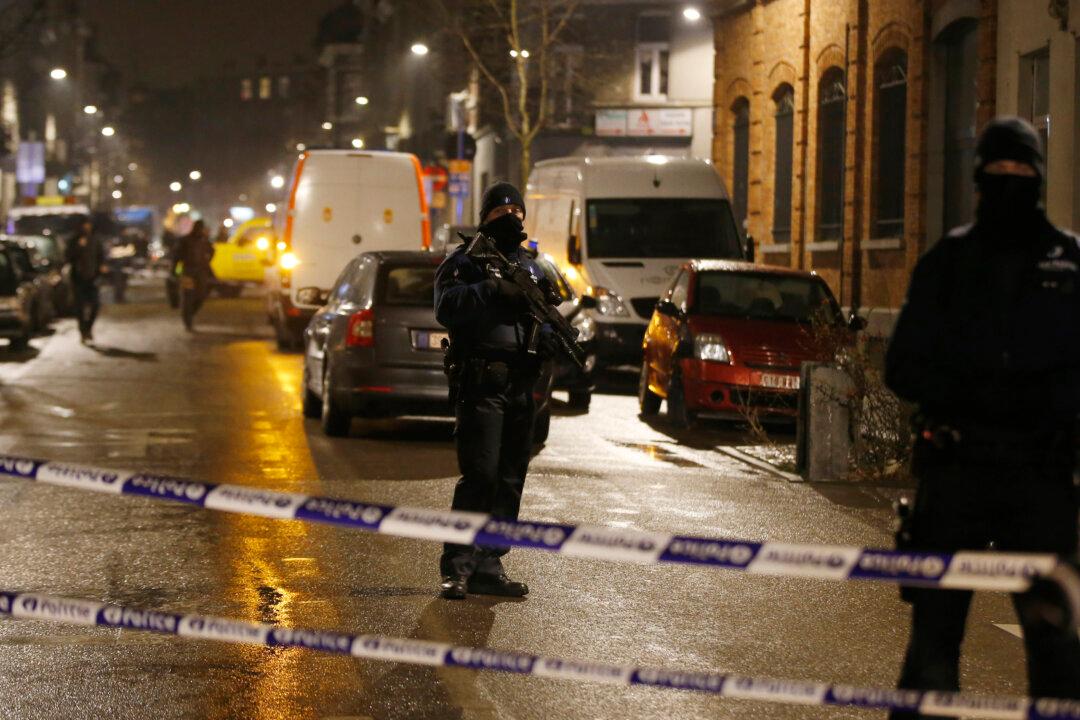BRUSSELS—U.S. Secretary of State John Kerry is holding counterterrorism talks in Brussels on Friday as top members of Belgium’s embattled government face ongoing criticism for a series of security and intelligence failings in the run-up to this week’s bomb attacks in the city that killed 31 people and wounded 270.
Kerry’s arrival Friday morning comes hours after at least six people were detained in raids linked to Tuesday’s attacks on the Brussels airport and subway system. Belgian prosecutors are expected to decide later Friday whether to charge or release them.
French counterterrorism police also detained a man Thursday who officials say was in the advanced stages of an attack plot. Officials told The Associated Press that the suspect, Reda Kriket, 34, had a past Belgian terrorism conviction and was linked to the suspected ringleader of the Paris attacks, Abdelhamid Abaaoud.
Amid signs that life in Brussels was returning to some sort of normality on the third day of mourning the dead, authorities lowered Belgium’s terror-threat level by one notch. However, they said the situation remained grave and another attack is “likely and possible.” Belgium had been on its highest alert since Tuesday’s bombings.






